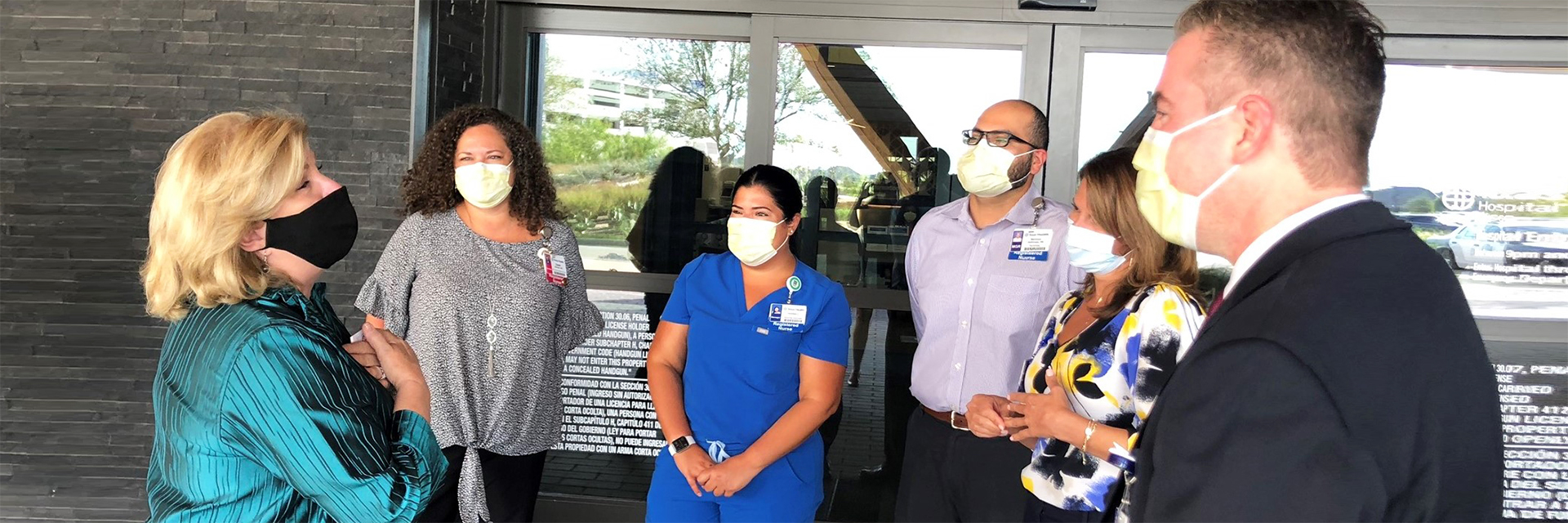Providing a Unified Voice
Active engagement in the public policy process is part of Texas Health's social responsibility. Government Affairs and Advocacy provides a unified voice for Texas Health at the federal, state, and local levels by:
- Assessing the impact of potential legislative and regulatory changes on both Texas Health and the communities we serve.
- Engaging our leaders, employees, clinicians, trustees and community partners in developing and advancing Texas Health's public policy agenda.
- Conducting hospital site visits and coordinating advocacy events with policymakers.
- Employing multiple communication channels to lead and facilitate strategic policy initiatives.
- Enhancing community partnerships and collaboration with key elected officials/staff and community, business and industry stakeholders to support Texas Health's federal and state public policy priorities.
In conjunction with the start of the new session of Congress and the regular session of the Texas Legislature, the Government Affairs and Advocacy Department develops the organization's federal and state public policy priorities every two years with input from the board of trustees, system leadership, clinicians, industry trade associations, area chambers of commerce and community stakeholders.
As Texas Health transforms to meet our consumers' shifting needs, we are continually called upon to help navigate the ever-changing, complex public policy environment, mitigate risk and create value for Texas Health. In 2020, we achieved significant public policy and advocacy objectives.
Advocating for Virtual Care and Reimbursement

Physical and mental illnesses do not end because of a stay-at-home pandemic order. To help North Texans continue to receive essential care, Texas Health successfully advocated for greater flexibility in telehealth regulations to virtually connect consumers with healthcare providers. Consumers who had symptoms of COVID-19 or struggled to find transportation or childcare were able to meet with a physician safely and conveniently.
We also worked to make sure that commercial payers reimburse telehealth visits as they would in-person care and urged Congress to provide funding to help offset revenue losses when elective surgeries and procedures were suspended for several weeks.
Texas Health continues to advocate for preserving current COVID-19 waivers to utilize telehealth because it has expanded access to convenient, affordable and patient-centered care for many consumers.

